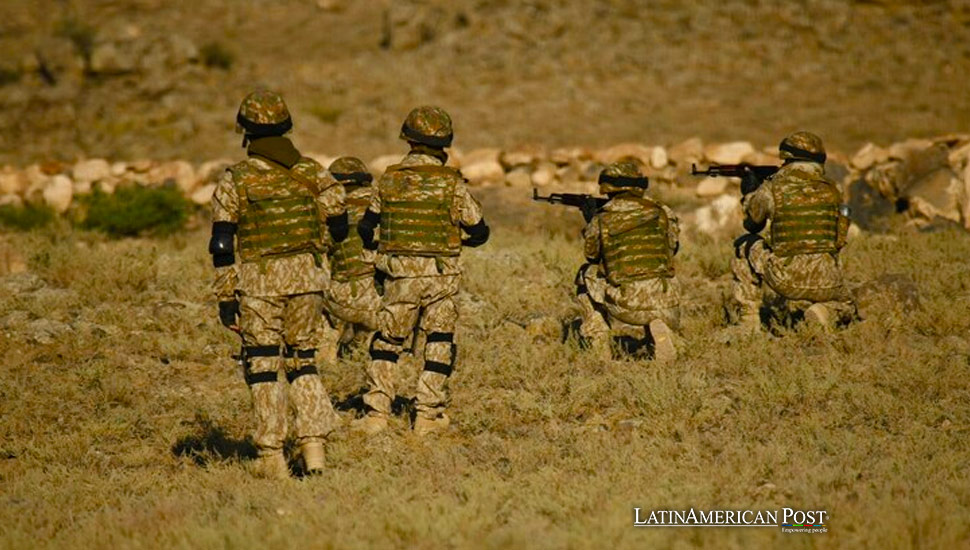Cuban Recruitment for Russian Army: Economic Desperation at Play

As economic pressures mount in Cuba, the BBC reveals that Russia has been recruiting Cuban nationals, offering them substantial financial incentives to join its military efforts in Ukraine.
In a recent exposé, the BBC has uncovered a concerning trend: more than 200 Cubans have allegedly been recruited to fight for Russia in its ongoing conflict in Ukraine. This recruitment drive, exposed through passport details leaked by the pro-Ukrainian platform InformNapalm, underscores the intersection of geopolitical strategies and economic desperation.
Exploiting Economic Vulnerabilities
The leaked documents reveal that the recruitment process was facilitated by hacking the emails of a Russian military recruitment officer based in Tula, south of Moscow. Further investigation showed that 31 of these recruits appeared actively involved with the Russian military, with some even displaying photos in Russian uniforms on social media platforms.
This recruitment comes at a time when Russia faces significant troop losses in Ukraine, with the BBC confirming the death of over 50,000 Russian soldiers and Ukraine estimating the toll to include nearly 500,000 killed or wounded. Russia has turned to foreign recruits to mitigate these losses and the domestic backlash from mobilizing its citizens.
For Cubans, the lure of joining the Russian army stems from severe economic strains at home. Cuba’s longstanding economic woes have been exacerbated by US sanctions, pushing many towards desperate measures for financial stability. Recruitment offers reportedly include monthly payments of around $2,000—a stark contrast to the average monthly income in Cuba, which is less than $25. The promise of Russian citizenship, which provides visa-free access to 117 countries, adds further allure compared to the Cuban passport’s access to just 61.
Facilitating Cuban Recruitment
The recruitment of Cubans is facilitated by historical ties between Cuba and Russia, dating back to the Cold War era. Cubans can travel to Russia without a visa, and direct flights to Moscow simplify logistics, making the transition easier for those tempted by the offer.
Local media in Ryazan, near Moscow, has reported that some Cubans have joined the Russian military, motivated by the desire to assist Russia in achieving its objectives in Ukraine. However, tracking the exact number of Cuban recruits proves challenging. Ukraine’s diplomatic envoy for Latin America and the Caribbean cited 400. In contrast, a Cuban officer in Russia claimed to command 90 Cubans, primarily deployed in occupied parts of eastern Ukraine rather than frontline positions.
The narrative of economic necessity is a common theme among foreign recruits in Russia’s ranks. Reports from various sources indicate that many were initially drawn by job opportunities unrelated to military activities, such as construction, only to find themselves on the front lines upon arrival.
Cuban authorities have issued conflicting statements regarding their citizens’ involvement in the conflict. While initial reports in September 2023 led to the arrest of 17 individuals linked to recruitment efforts, Cuba’s ambassador to Russia later indicated no objections to Cubans legally participating with the Russian army. This was contradicted shortly after by Cuba’s Foreign Minister, who asserted Cuba’s stance against its nationals participating in any conflicts.
The increase in foreign fighters joining Russian forces has been noted by Ukrainian authorities as well, with many captured on the battlefield coming from economically disadvantaged countries. These recruits’ lack of combat training has tragically resulted in meager survival rates.
Humanitarian Concerns and Global Implications
This situation highlights not only the geopolitical manipulations exploiting economic vulnerabilities but also the dire economic conditions in Cuba that drive individuals to accept high-risk jobs abroad. It underscores the urgent need to address economic disparities and provide safer, more sustainable opportunities for those in economically challenged regions.
Also read: Cuba’s Aging Crisis: Private Caregivers Fill the Gap
As the conflict continues, the involvement of Cuban recruits in Ukraine not only poses ethical and legal questions but also deepens the humanitarian concerns associated with foreign fighters’ roles in international conflicts. The global community must grapple with the implications of such recruitment practices and work towards solutions that respect human rights and international law.





